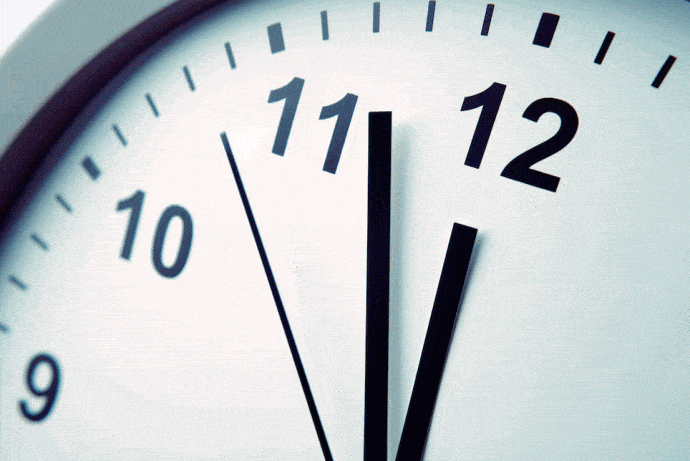6 Ways to Say Goodbye to Impulse Buys Once and For All
May 5, 2019 12:00 AM EST | 8 min read
I remember it was a Sunday, and I was sitting in my crowded apartment.
I was surrounded by a DVD boxed set of the Golden Girls, a box of hair extensions, and a mountain of cheap jewelry from Amazon.
Why did I have all of this crap?
My drawers were full of clothes I didn’t wear, movies I forgot I had, and piles of jewelry that turned my fingers green.
It was because of impulse buys.
I realized my shopping problem had reached critical mass.
I fell prey to the allure of impulse buys.
If I saw something new and shiny I had to have it.
There was no logic to these decisions.
I justified my spending habits with the fact that most people make impulse buys.
Who was I hurting?
Myself, as it turns out.
I’m a reformed impulse shopper now, and I’m on my way to becoming debt free and financially independent.
I wish I could grab my past self and slap her in the face for all of the money she wasted on impulse buys.
What is an impulse buy?
Impulse buys are usually made in the depths of a desperate “gimmegimme” moment at the store.
There’s no logic to them.
It hurts to fight the urge to buy.
It feels like the Reese’s Cups at the checkout line are screaming your name, begging you to take them home with you.
You buy the Reese’s Cups, eat them, and feel satisfied for a few minutes.
Mmm, peanut butter.
And then there’s an empty, aching feeling.
The happiness from the original purchase fades away.
Many impulse buys are met with a touch of disappointment after the magical moment of purchase.
I think it’s dangerous when consumers don’t realize that the impulse buy can’t make them happy.
These are the people who continue to pour money into this bad habit.
Whether you feel the emptiness after an impulse buy or not, the practice is harmful.
Our society normalizes hyper-consumerism and impulse purchases, which makes them even more lethal to your finances.
How Impulse Buys Are Hurting You
Impulse Buys Drain Your Finances
Sure, it’s your money and you’re entitled to spend it however you see fit.
But have you taken stock of how much money you’re throwing away on useless goods?
For example, I would buy a new piece of jewelry on Amazon at least once a week for $20.
In a year that adds up to a whopping $1,040—for jewelry I rarely wore.
Men on average spend $41 on impulse purchases in one sitting, while women spend $31.
Even more telling?
The average person will spend $100,000 on impulse purchases over their lifetime.
Yikes!
Couple these frequent unnecessary purchases with unwise credit card habits, and you’re looking down the barrel at a lifetime of debt.
Impulse Buys Are Bad For Your Brain
Most people make impulse buys when they’re excited, bored, sad, angry, or intoxicated.
Nearly half of all impulse shoppers regretted their decisions later.
Impulse buys are not logical.
They’re a result of emotional highs and lows, which are a result of your brain craving the positive feeling you get when you buy something.
While it sounds all well and good to get a rush of endorphins when shopping, it’s not a good thing.
This brief rush of happiness makes your brain crave the high again.
This is why impulse purchases are so immediate and inexpiable—your brain wants that happy feeling again, and it wants it now.
Impulse buys perpetuate the cycle of shopping, disappointment, and further purchases.
While fighting impulses is hard and painful, it ultimately frees your mind from the shackles of constant wanting.
Impulse Buys Are Ruining Your Future
If your state of mind and finances aren’t where they could be, it’s difficult to build for the future.
I found that impulse buys were (one of many things) perpetuating my chronic depression, which made it difficult to stay motivated or make positive decisions.
That $1,040 I wasted every year on jewelry could have been used to pay off student loans, open a retirement account, or start an emergency fund.
If I had been wise with my money instead of blowing it on impulse buys, I would be in a more secure financial state today.
How to Stop Impulse buys
1. Lock up your credit cards
Credit cards made it way too easy for me to buy something, both in-store and online.
I needed to create barriers to convenience, since I knew Impulse-Me would get fed up and not make the purchase if it was too hard.
I needed to make sure my credit cards were inconvenient and unreachable (but reachable for an emergency, of course).
Many people suggest freezing your credit cards.
That didn’t work for me, since I was in my freezer every day and there was a chance I would “accidentally” defrost it.
Instead, I placed my credit card in my safe and gave my then-fiancé the key.
If I wanted my card, I had to go to someone else and explain why I needed it.
That was sufficiently annoying to stop Impulse-Me from wasting more money on chocolate bars.
2. Start an envelope system
I took a page from Dave Ramsey here with a modified envelope approach.
I withdrew cash at the beginning of the month and divided it up into envelopes.
Groceries, gas, and rent were carefully placed in categorized envelopes that I carted with me.
This approach worked because I kept my credit card locked up for most of the month.
The envelope system works well when you lack the self control to avoid extraneous buys.
It makes you choose between necessary expenses like toilet paper and impulse buys like candy.
If you only have $100 to get through the week, impulse purchases are the last thing on your mind.
3. Phone a Friend
I only went shopping if I took someone with me.
Having another person during a shopping trip is a great way to prevent unnecessary purchases.
The other person can offer support or distractions if those decorative doorknobs at Anthropologie are calling your name.
However, this isn’t a good idea if your buddy also happens to be an impulse shopper.
After all, you are the company you keep.
4. Stick to the List
This was an approach I used after practicing self control with the envelope system.
I wrote out a shopping list that included things i used to buy on an impulse.
Then I carefully priced out my trip to the store and budgeted in these treats so I didn’t feel deprived.
Since I already knew how much I was going to spend before I even got in my car.
Once I was in the store, I had a simple rule: if it’s not on the list, I’m not buying it.
I thought of the list as my key to buying something.
If it wasn’t on the list, it was locked up and inaccessible to me.
I even wrote my list in the order of the store aisles to speed up my trip and to avoid extra temptation.
5. Remove Your Payment Information
I was b-b-b-bad to the bone when it came to online shopping.
Amazon’s Click-to-Ship option got my Benjamins every time.
The first thing I did was cancel my Amazon Prime account.
The two-day shipping was a great benefit, but in many ways it contributed to my impulse shopping problem.
After I canceled my Prime membership, I also removed my payment information.
This included credit card numbers and shipping information.
I also removed the “Remember Me” option on Amazon.com so I had to manually log in each time to make a purchase.
Impulse-Me found all of this extremely annoying and stopped buying unnecessary items on Amazon.
Success!
6. Practice control and awareness
Control and self-awareness are crucial to conscious shopping.
When you put that piece of jewelry in your basket, stop.
Question yourself.
Will you be happy with this purchase in one month?
Will you be happy with this purchase in ten years?
How will this item create positivity in your life?
Could that $20 be better spent elsewhere?
Will you regret this decision?
Another strategy is to imagine what that $20 could go towards.
A trip to the zoo for your kids.
A contribution to your retirement fund.
An additional payment towards debt.
These things matter more than an object.
You and your family’s happiness and freedom matter more than trinkets.
The Bottom Line
It can be so hard to kick a nasty shopping habit.
Impulse buys weigh on your mind, your finances, and affect your future.
Unless real change comes from within yourself, those impulse habits will come back.
In addition to small changes in your daily routine, practice mental toughness and self-awareness to create a path to financial freedom.
Your wallet will thank you.











